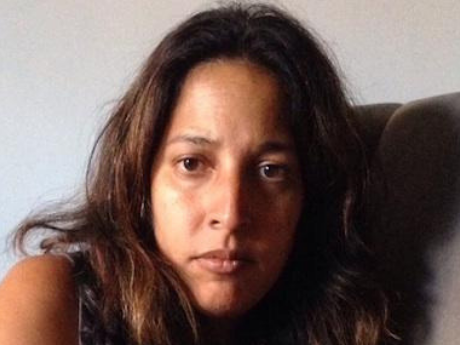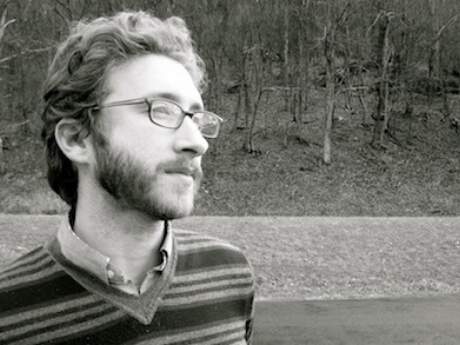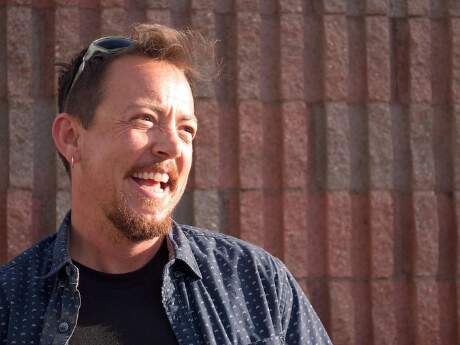New American Poets
New American Poets: Prageeta Sharma

Underpants
My sweetie's underpants have argyles on them and grip his thighs.
O his European underpants with pastel colors,
how they illustrate his unassuming ways.
His secrets are feasts and traumas
and he is sometimes the loneliest under blankets.
His underpants represent the unconscious,
innocent, nervy, and true.
I can't help feeling eager.
O how he is an old man in his underpants.
When he is sleeping he has the softness of a child,
unquestioning and quietly fitful,
I kiss his head and wings,
for he in his underpants travels like a Griffin
to himself, a fabled monster of certain
sadness, when he sleeps it all goes inward,
in his lion and eagle.
"Underpants" by Prageeta Sharma. All rights reserved. Reprinted with the permission of the author.
If you could commission any poet, living or dead, to write a poem about a subject of your choice, who would you choose and what would you have them write about?
I would ask Thomas Hardy to write a poem about the urban landscape of New York in 2003. Hardy was able to mesh, in his time, the pastoral and the philosophical with exquisite lyricism. Even his pastoral gave way to the industrial revolution and World War I (I am thinking of "Channel Firing" and the stanza: "The glebe cow drooled. Till God called, 'No; / It's gunnery practice out at sea / Just as before you went below; / The world as it used to be: / All nations striving strong to make / red war yet redder.'") To have him witness how red our wars have become would allow him to produce (hopefully) a powerful and despairing poem.
Is there a collaborative element to your writing process and what do you think it is?
I do like using activities such as football or baseball metaphorically as a way of exploring themes of desire and longing.
A few poems have lifted nautical terms and football statistics. I also like collaborating with other poets and with visual artists and sound artists, but when I work on that kind of collaboration, something with poetic elements gets created, but not necessarily a poem.
Are there aspects of other arts you have put to use in your own poems?
I am learning final-cut pro (video editing) right now and definitely like the idea that writing is similar to stock footage—that you have to edit the moments down and think of the line as a frame. Poetry has also helped me link the audio to the visual so that editing becomes more about the musicality of images.
Did you start off with an idea that your book grew around? Did you move away from that idea as the book progressed?
I started with the idea of a kind of unabashed confrontation with disappointment and worked towards a way of reeling it in with a hopeful lyrical edge.
Are you interested in the relationship between poetry and politics? Do you believe that your own poetry has political implications?
I definitely am. I want to enact a certain kind of stance rather than speak about it. If I want to talk about South Asian women and their culture or personality, I would much rather introduce philosophical or psychological concepts or themes that are mouthed in the narrative of the poem.
Do you think that your poetry or poetry in general speaks to spiritual or religious yearnings and struggles? If so, how?
I like to think of clarity as a spiritual moment. Not a defined clarity but by the end, the poem should have gained a necessary momentum to speak out suggestively and generously to an idea or truth or a combination of ideas. Being raised as a Hindu, I was taught to honor knowledge and books like a religion and so for me poetry keeps this relationship close, true, and active.


